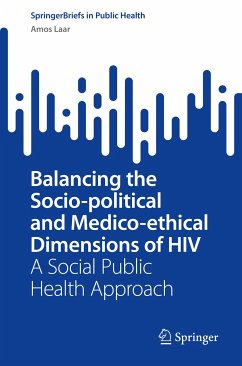
Political Economy of the Welfare State in Latin America (eBook, PDF)
Globalization, Democracy, and Development
Versandkostenfrei!
Sofort per Download lieferbar
32,95 €
inkl. MwSt.
Weitere Ausgaben:

PAYBACK Punkte
16 °P sammeln!
This book is one of the first attempts to analyze how developing countries through the early twenty-first century have established systems of social protection, and how these systems have been affected by the processes of globalization and democratization. The book focuses on Latin America to identify factors associated with the evolution of welfare state policies during the pre-globalization period prior to 1979, whilst studying how globalization and democratization have affected governments' fiscal commitment to social spending. In contrast with the Western European experience, more develope...
This book is one of the first attempts to analyze how developing countries through the early twenty-first century have established systems of social protection, and how these systems have been affected by the processes of globalization and democratization. The book focuses on Latin America to identify factors associated with the evolution of welfare state policies during the pre-globalization period prior to 1979, whilst studying how globalization and democratization have affected governments' fiscal commitment to social spending. In contrast with the Western European experience, more developed welfare systems evolved in countries relatively closed to international trade, while the recent process of globalization that has swept the region has put substantial downward pressure on social security expenditures. Health and education spending has been relatively protected from greater exposure to international markets and has actually increased substantially with the shift to democracy.
Dieser Download kann aus rechtlichen Gründen nur mit Rechnungsadresse in A, B, BG, CY, CZ, D, DK, EW, E, FIN, F, GR, HR, H, IRL, I, LT, L, LR, M, NL, PL, P, R, S, SLO, SK ausgeliefert werden.













